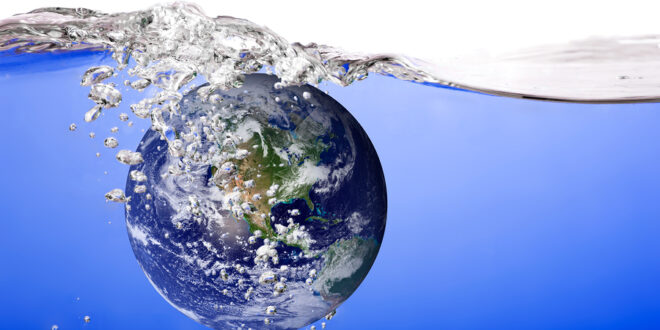The planet is mainly composed of water, and over two-thirds of the earth’s surface is covered by marine ecosystems. Water is a fluid substance as it flows freely across the world, traversing state and country boundaries alike, and all life on earth is dependent on it.
Water pollution has become an increasing problem threatening the survival of humans and other plants and animals relying heavily on water to survive.
Table of Contents
What Is Water Pollution?
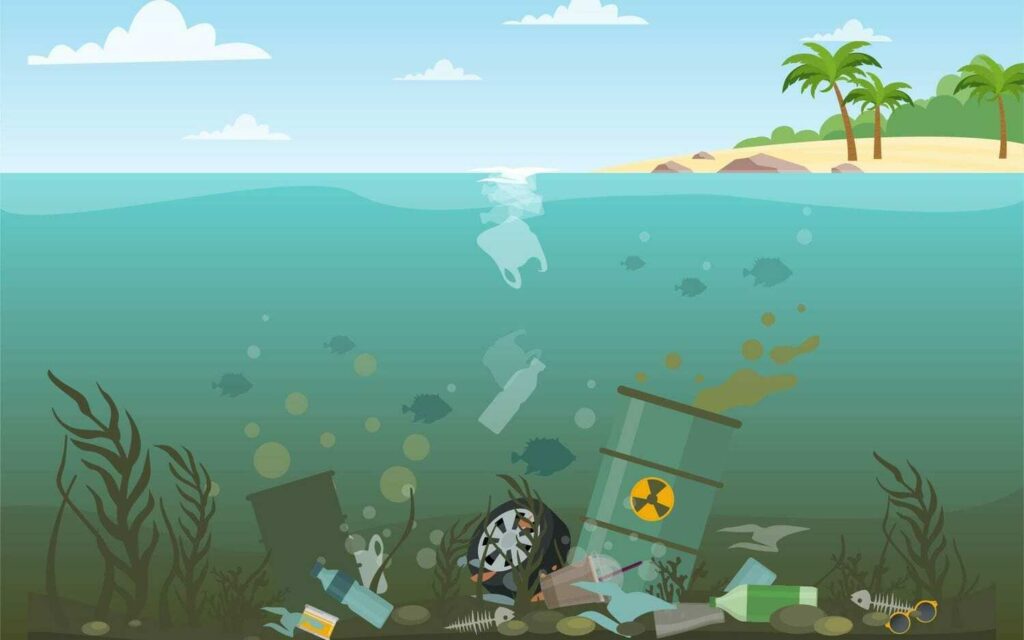
Water pollution is the poisoning of the planet’s water sources. When toxins get dissolved in water, they may make their way to the ocean, lake, river, or other bodies of water. As a result, pollutant substances could be found in water or end up in households where families use them for drinking and other purposes.
Maintaining these conditions negatively impacts water quality, so continued monitoring may be needed to prevent the outbreak of water contamination. To avoid this, some people opted to use water collection tanks. Aside from keeping your water safe from water-borne illnesses due to contaminated water, there are also a lot of options when it comes to a water tank’s function and type.
Earth’s Water Resources
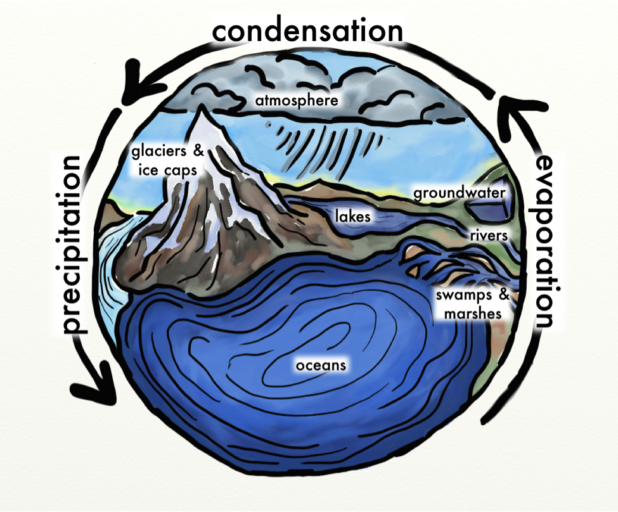
Water is primarily found in various means like rain, ripples in rivers, flowing out of faucets, or in underground reservoirs, and yet not everyone has thought of its source or where it originally comes from.
You should be aware of where water on the planet is coming from before you attempt to learn the effects of pollution. Here are the two different sources of the planet’s water:
-
Surface Water
This applies to water in reservoirs, ponds, streams, or other freshwater bodies used for drinking. Many plants and animals rely on the amount and quality of this water to survive.
-
Groundwater
This pertains to the water contained underneath the earth’s surface in aquifers and other geologic types. This source supplies the rivers and oceans, providing a significant portion of the world’s drinking water supply. It could be a substantial source of water for people who depend on wells.
Both surface water and groundwater are essential to all life forms on earth. Without these, humans may not be able to exist. But unfortunately, both can be polluted in various ways.
Causes Of Water Pollution

Humans must prioritize the responsibility of preserving the earth’s groundwater and surface water. If not, harmful microorganisms and toxic chemical substances may contaminate such water bodies, and the quality of water could decrease, making it unhealthy.
Here are significant causes of water pollution:
-
Waste Dumps
Dumps of wastes and garbage on any body of water can cause water pollution. These may include materials from industrial sites, manufacturing sites, or agricultural sites, and they generate waste in the form of hazardous chemicals and toxins.
Despite being monitored, some still lack adequate waste management systems. If such wastes aren’t adequately handled or treated, they can potentially pollute the freshwater environments it comes into contact with.
-
Oil Spills
Water shouldn’t mix with oil because oil isn’t soluble in water. Large spills and leaks, although often unintentional, are a significant source of the contamination of the marine ecosystem. Leaks and spills are often triggered by offshore oil exploration activities or ships transporting oil.
-
Bacteria In Sewage Systems
Even after treatment, harmful substances, microbes, and fungi may still be present in sewage and wastewater systems. The viruses and bacteria present in the wastewater could propagate diseases, harming the health of humans and animals.
-
Chemicals And Pesticides
Agricultural farmers often use chemicals and pesticides to defend their crops from microbes and insects. These chemicals, however, can damage livestock, plants, and humans if they leach into groundwater. Furthermore, the contaminants can combine with the rainwater, which then runs into rivers and lakes and then into the ocean, creating more water pollution.
-
Global Warming
Rising temperatures as a result of global warming could be a significant source of water pollution. Water levels increase as a result of warming, which can destroy aquatic species. When major die-offs arise, the water source becomes much more polluted, adding to the problem.
Effects Of Water Pollution
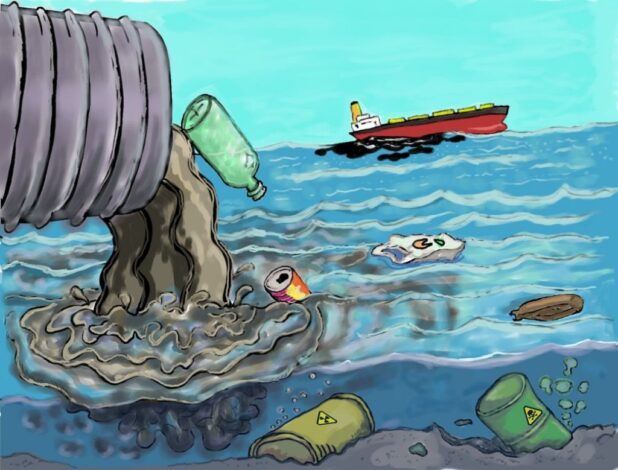
Water contamination has the potential to be disastrous. If you don’t live around bodies of water, you might not see how pollution could impact you.
Here are the possible effects of water pollution if not resolved:
- Water contamination could harm human health since it may contaminate drinking water, leading to waterborne illnesses. In particular, it may be fatal if not treated.
- Water contamination affects the environment as well, causing a condition known as eutrophication or excessive concentration of nutrients in the water, which can destroy fish and other marine creatures.
- Toxic elements dissolved in water may reach humans through the consumption of fishes or other aquatic species.
- Water runoff often leaches toxins into the environment, preventing the growth of vegetables and other food crops.
Fighting Water Pollution
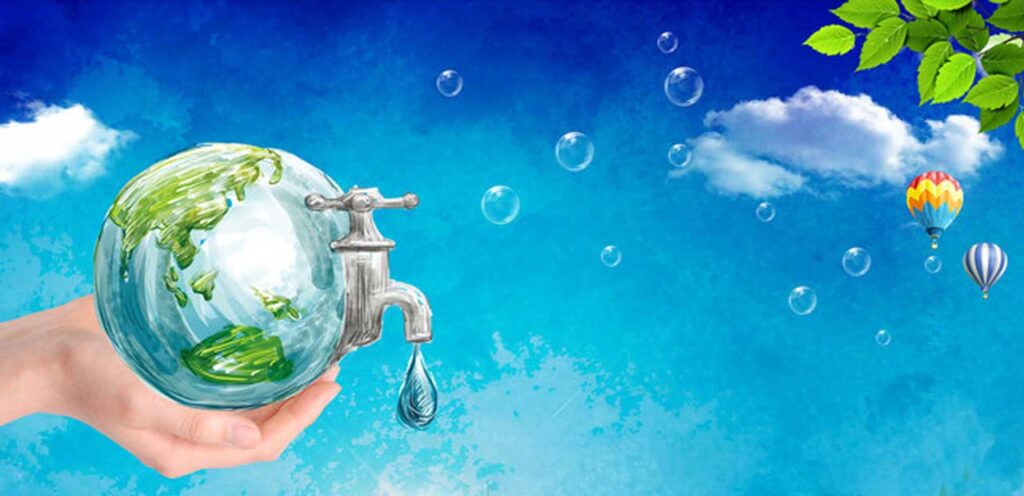
Water pollution is a significant issue worldwide and is caused by many factors. There seems to be a big possibility for it to disrupt the planet’s ecosystems and the health of all living things. Water is a valuable resource, so good water treatment policies and maintenance are critical to maintaining the world’s water supplies safe.
There are several means you could contribute to the reduction of water contamination:
-
Proper Sewage Management
There may be a need for a more efficient cleaning solution to reduce pollution in sewage and drainage. Rainwater runoff, including different pollutants, could also be treated and cleaned through proper management systems. Continuous maintenance could be necessary, including the replacement and reconstruction of leaking and inadequate sewage processing infrastructure.
-
Environment-friendly Agricultural Practices
The effects of pesticides and herbicides can be mitigated through integrated pest management (IPM) strategies like controlling pests to minimize risks and reducing reliance on chemical pesticides. Also, farmers may develop and implement fertilizer management strategies to reduce excessive nutrient application, lowering the risk of phosphate and nitrate runoff induced by the chemicals.
Besides, farmers may use runoff and flood management techniques to restrict currents and keep back their soils. Crop rotation, mulching, growing seasonal crops, contour plowing, and building silt fences are examples of green farming practices to help mitigate the consequences.
-
Strictly Regulated Waste Disposal
Reducing the effects of water pollution incurred by various establishments could necessitate installing well-designed treatment and water-cooling systems. Even though many companies are believed to have these advanced waste management facilities, others don’t have quality treatment procedures.
Therefore, the construction of pre-treatment facilities and the implementation of quality waste treatment protocols could aid in the elimination of harmful pollutants.
-
Individual Efforts
As stewards of the planet, you can make a significant difference by taking the initiative to teach people about the risks of waste and how to subdue it. Individuals and organizations mindful of the dangers of water waste may use collaborative efforts and campaigns explaining to families, neighbors, and society as a whole.
The Bottomline
Water has its benefits as well as disadvantages if left with no proper care and regulations. With the causes and adverse effects water pollution may bring, there are still ways and methods to mitigate this global issue.
You’d only have to educate yourself about the information mentioned and support projects about the matter as water belongs to everyone worldwide, so people should do their part to protect it.
 World Magazine 2024
World Magazine 2024
